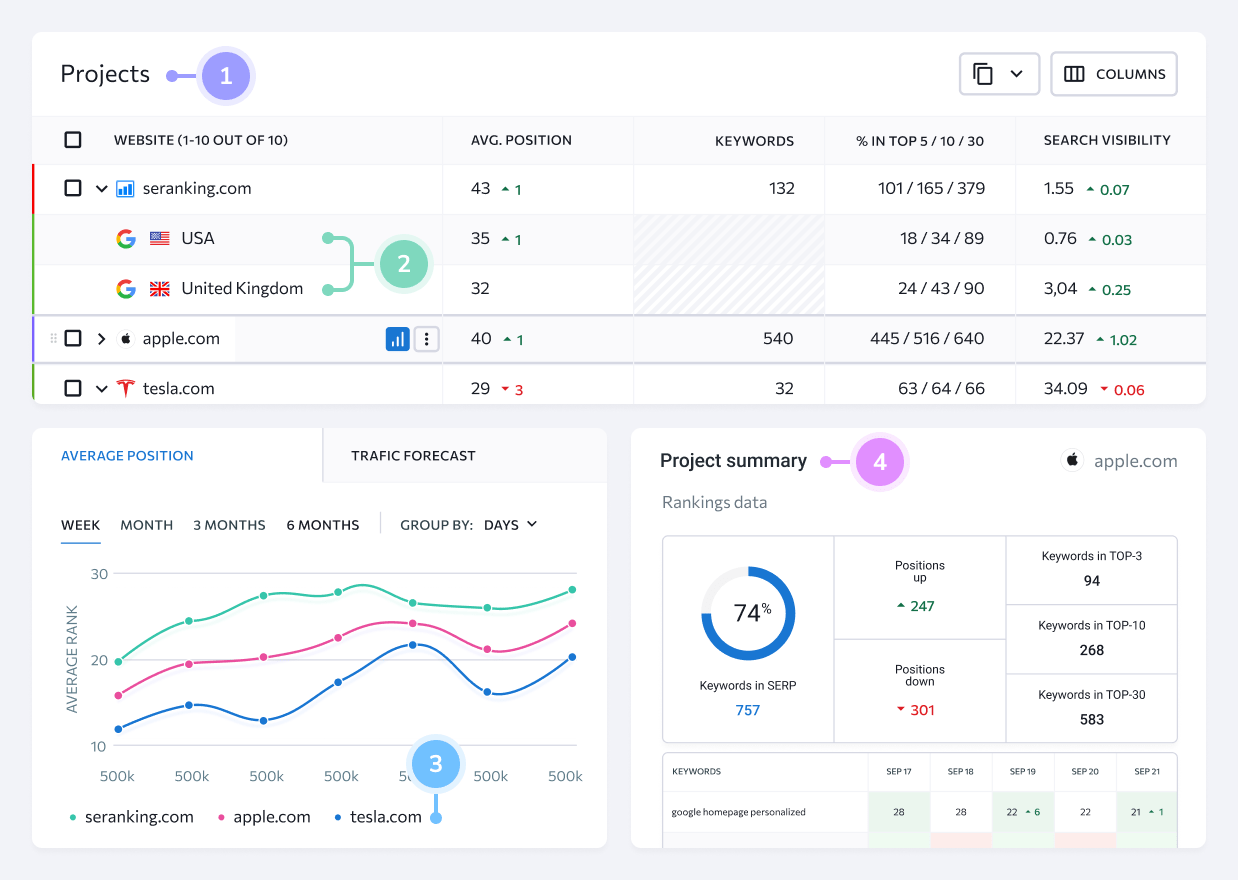Shop At Haya: Your Ultimate Shopping Guide
Discover the best shopping tips, trends, and deals for a smarter buying experience.
Chasing Ghosts: The Realities of Rank Tracking
Uncover the truth behind rank tracking! Discover the myths, challenges, and secrets that will elevate your SEO game.
Understanding the Importance of Rank Tracking in SEO
Rank tracking is a crucial component of any successful SEO strategy, as it allows website owners and digital marketers to monitor their website's performance in search engine results. By consistently tracking keyword rankings, businesses can gain valuable insights into how well their optimization efforts are resonating with their target audience. This data not only helps identify which keywords are driving traffic but also sheds light on potential areas for improvement, allowing for more informed decisions regarding content creation and marketing strategies.
Furthermore, understanding the fluctuations in rank tracking can help businesses stay ahead of their competitors. By identifying trends and patterns in search engine results pages (SERPs), companies can adapt their strategies to ensure they remain relevant. Additionally, rank tracking provides a benchmark to measure the effectiveness of SEO campaigns over time. Whether you're aiming for increased visibility, higher click-through rates, or improved conversion rates, the importance of maintaining a keen eye on your keyword rankings cannot be overstated.

Common Misconceptions About Rank Tracking: What You Need to Know
Many people believe that rank tracking is an exact science, where tracking tools provide precise rankings at any given moment. However, this is a common misconception. In reality, search engine results can vary based on numerous factors, including location, device type, and even user behavior. For example, if you check your site’s ranking on a mobile device, it may differ from what you see on a desktop. Additionally, search engine algorithms are constantly being updated, which can lead to fluctuations in rankings throughout the day. It's essential to use rank tracking tools for comprehensive insights, rather than relying on single snapshots.
Another misconception is that rank tracking is all about achieving a top spot for targeted keywords. While it's true that high rankings can lead to increased visibility, focusing solely on rank position can be misleading. The reality is that traffic and conversions matter more than mere rankings. A keyword may rank in the top position, but if it doesn’t attract relevant traffic, it’s not serving your overall strategy. Therefore, it’s crucial to pair rank tracking with metrics like organic traffic, engagement, and conversion rates to truly gauge the effectiveness of your SEO efforts.
How Accurate Are Rank Tracking Tools?
Rank tracking tools play a crucial role in the world of search engine optimization (SEO) by helping website owners and marketers monitor their keyword positions. However, the accuracy of these tools can vary significantly based on several factors, such as the tool's algorithm, the data sources it utilizes, and the geographical location of the searchers. For instance, some tools provide localized data, while others compile global rankings, leading to possible discrepancies. Therefore, it is essential for users to understand that while these tools can provide valuable insights, they may not always reflect the precise performance of a website in real-time.
Moreover, user behavior plays a significant role in determining search engine results. Search engines like Google personalize results based on individual search histories, preferences, and locations, making it challenging for rank tracking tools to deliver 100% accurate results consistently. To minimize inaccuracies, it is advisable to utilize multiple tracking tools, cross-reference their data, and consider other metrics such as organic traffic and conversion rates. By recognizing the limitations and understanding the context of rank tracking, users can make more informed decisions about their SEO strategies.